
Instagram is worth $1B to Facebook
Yesterday, Facebook announced that it acquired Instagram for $1 Billion. The company is less than two years old, has no revenue, and about a dozen employees. Remember, acquisitions are about what the acquirer can do with the company in the future, not some multiple of revenues or profits today. Why is Instagram worth $1 billion?
Facebook acquired Instagram for about $30 per user, or $1B. ($30/user X 33M users = $1 billion) Facebook is valued at about $100 per user or $80 billion ($100/user X 800M users = $80 billion). Other popular social apps are valued around $20 to $50 per user. The monetization models need to work out about the same to justify the valuations.

10 things you might not know about RMS Titanic
April 14 is the 100th anniversary of Titanic's sinking. As the height of technological and engineering innovation of its day, the great ocean liner is more than fascinating for its sinking -- reminder that today's tech obsessions are nothing new.
In 1977, before the wreck had been discovered and when few people knew much about Titanic, I wrote a term paper on the ill-fated vessel in between college and high school. I participated in the federally-funded Upward Bound program for teenagers from low-income families wanting to go to college. I spent three summers at Bowdoin College in Brunswick, Maine. The Titanic paper completed my three-year participation. Much about the disaster has changed since the wreck site was found, more than 2 miles beneath the Atlantic, in 1985, and my research. I confess. I am a Titanic buff.

BASIC: Making a case for an old favorite
Are you looking for a way to increase productivity when it comes to your software development? Are you willing to try something different? How would you like to speed up software development, decrease time spent on software maintenance and improve the reliability of your software?
Many a long-time C programmer will likely tell you that C (or C++, C#) is the only serious programming language worth using today in business or the enterprise. To even suggest otherwise would likely make one a laughing stock by one's peers. Yet think about this for just a moment: Of all the software projects you or your company have undertaken, how many of them have come in over budget? How many have actually failed completely? How many, though finished, were plagued with bugs that never seem to get resolved? How easy has it been to maintain such projects, years after they were developed?
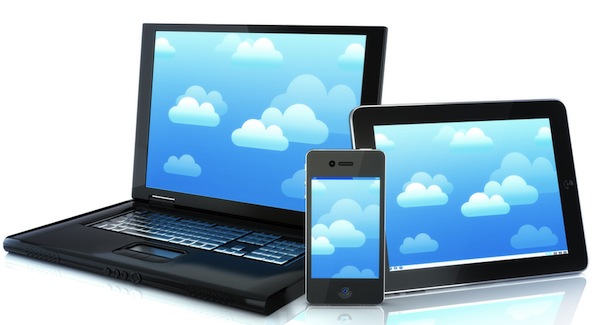
5 ways my small business benefits from the cloud
We have talked a lot about cloud computing recently here on the pages of BetaNews. That's not surprising since it is one of the fastest growing segments of the tech industry today. Missing, however: A more personal story on how we're using the cloud in our day-to-day business.
I run a small freelance writing and media consulting business out of my home, Oz Media Inc. While being my own boss is fun, it also requires me to be owner, CEO, CFO, IT administrator, and employee. It's a company of one. Cloud computing has definitely paid off and made running my business a lot easier, and here's why.
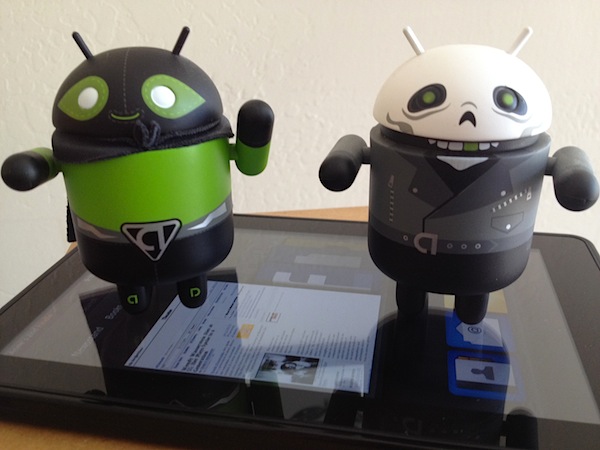
Google isn't trying to save Android tablets but kill Kindle Fire
Rumors about Google's forthcoming tablet are increasing, which astounds me -- as they portray this as something new. Hey, Google already formally stated it would produce an Android tablet. The rumormongers have got the reasons wrong, too. Google isn't gunning for Apple but Amazon.
The retail giant is by far the biggest competitive threat standing before Android today. Amazon has customized Android, released its own hardware, ditched Google's browser for its own Silk, established a viable app store alternative to Google Play and created a curated user experience that rivals Apple's. In just one quarter, Amazon's Kindle Fire jumped ahead of all other Android tablets, putting it second to iPad. Every Kindle Fire sold is one more brick in the wall blocking the success of the broader Android ecosystem.

Where Groupon went wrong: daily deal myopia
Groupon was called the "world's fastest growing company," with 100 million subscribers in 45 different countries and a valuation as high as $25 billion. The service it offers consumers is relatively simple to grasp: get enough people to sign up for a sale or promotion at a restaurant, store, or service, and the promotion then becomes available to everyone who signed up.
Of course, accurately ascribing a value to Groupon --and indeed even properly managing its own accounting practices-- has proven to be very difficult. This week, Groupon could find itself under the scrutiny of the Securities and Exchange Commission yet again.

Consumer Reports whores for pageviews (again), recommends new iPad after calling it hotter than hell
Consumer Reports does it again. Lo and behold, after causing a media firestorm over its blatant attempt at whoring for pageviews, the supposedly impartial source for product reviews is now actually going to recommend the new iPad as the top tablet available.
You read that right. "Heatgate" was supposedly a big enough issue to cause the company to write several posts on it, without quantifying that the iPad is not hotter than other competing tablets or (basically) every laptop on the market. CR is doing an about face, now saying the device's heat generation is no longer a problem.

Mobile app developers, don't forget about privacy and security
User experience is important when developing any mobile app but in an enterprise context, what about security? For example, if you are developing an app that stores personal information there are regulations that ask where this information resides. Depending on the industry, mobile app developers may be completely accountable if any security issues happen on an app that they develop.
To ensure that you are in full compliance to any privacy, security or regulatory questions, it is recommended that apps be developed in-house or through a partner. So do mobile app developers need to consider regulatory, security or privacy concerns in advance of mobile app development projects?
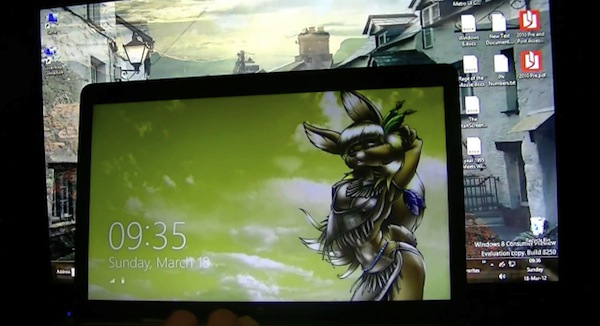
Consolidate your life with Windows 8
Microsoft’s image of the future makes Windows 8, supported by cloud services, the hub integrating all devices and personalization in the user’s life. The key is the new log-in method, which requires Windows Live ID. Metro application, user settings, Start Screen layout, desktop icons and user files follow the user wherever he or she signs in with Windows Live ID. Microsoft plans one consistent experience across devices. Apple and Google use similar identity mechanisms for iOS and Android devices and syncing content among them.
The problem, and perhaps it's one of those beta things, the process doesn't work so well. Then there's this: everything has to be stored within the Microsoft cloud -- that's Windows Live and SkyDrive, with the optional integration of DropBox. This is all nice if you don’t mind storing you information on someone else's server, with an unknown location and, even worse, risk some unknown people snooping inside your stuff. Do you really trust your files in someone else's hands? Even Microsoft's? There is another way to achieve this lifestyle.

App developers should adopt the Moore-is-less principle
Programmer Chris Boss has contributed some intriguing BetaNews commentaries and analyses about the state of application development and also Windows 8. Some readers call him old-fashioned, for his views on developing software. I disagree. Chris is new-fashioned, and this old dog could teach you young pups some new tricks.
I don't refer to developer tools but Chris' philosophy -- that applications should be lightweight rather than bloated. He contends that some of the tools commonly used today encourage bloat. I'm not knowledgeable enough there to make a case for or against anything. But I can comment on trends that demand less bloat and well-written apps that consume less disk space yet are powerful.
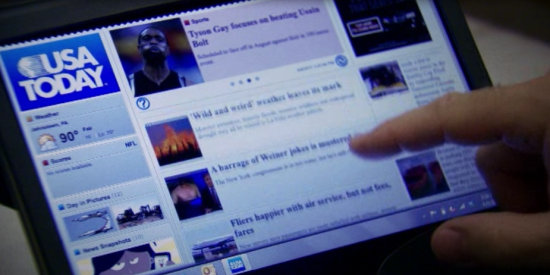
Windows tablets and the enterprise, what's the problem?
I have repeatedly read how Windows 7 is not well-suited to touch, which is the reason some people are waiting for Windows 8 before buying a tablet. Microsoft's solution is Metro -- the next generation touch interface for Windows. Yes, Metro is touch friendly, but is it really the answer to the enterprise when it comes to Windows tablets?
Windows 7 is not any less suited to touch and a tablet PC than Windows 8. Sure Windows 8 does offer a few perks that make touch better as far as the operating system is concerned, such a better on-screen keyboard. But as far as applications a business may want to design themselves specific to tablets, I don't see any advantage Windows 8 has over Windows 7.

Stand in line to beat Apple senseless
There are pageviews to be had when it's time to criticize Apple: probably as much if not more than writing about the latest iGadget. It is the same pattern over and over. First, Apple debuts its latest creation, and the press fawns. Next, a blogger or journo with an ax to grind finds some obscure problem affecting a small segment of users and makes it into a showstopping defect.
Without much thought, the rest of the media jumps on this report, and hundreds if not thousands of stories tell us how Apple's at the beginning of the end, lost its edge, blah blah blah. Same story every time -- from Antennagate, to Batterygate, and now Heatgate.
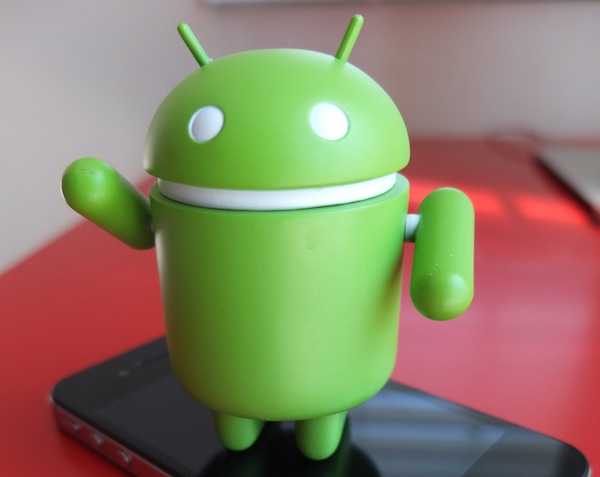
Switching from Android to iOS
Google’s Android and Apple’s iOS dominate the smartphone market with hoards of fans willing to fight tooth and nail for their platform of choice. What is it really like moving from one to the other? I found out.
I made the move from Android to an iPhone 4S over the weekend and reactions have, as expected, been mixed ranging from the disparaging “a downgrade” to “welcome to the club, you won’t regret it”.

Will Windows 8 save Christmas?
PC shipments slogged along during 2011 and will continue to do so this year. IDC says growth was a paltry 1.8 percent last year and will be a tepid 5 percent in 2012 -- tepid considering the year-over-year comparison is weak. Bob O'Donnell, IDC's veep of Clients and Displays at IDC cites the oh-so obvious reason: "Many consumers are holding off making PC purchases at the moment because tablet devices like Apple's iPad are proving to be a powerful distraction".
But he qualifies: "End user surveys tell us that few people consider media tablets as replacements for their PCs, so later this year when there is a new Microsoft operating system, available in sleek new PC form factors, we believe consumer interest in PCs will begin to rebound". Do you believe him? Pardon my skepticism. I don't.

Does Windows 8 programming lack creativity?
Windows 8 brings a totally new user interface model with its Metro environment, which is receiving mixed response from developers and end-user customers. The tile-like UI certainly is different from the classic desktop.
Does Metro mean that software will be even more creative than in previous Windows generations? Is there an inherent flaw in software design that prevents us from getting better software and will it still exist with Windows 8?
